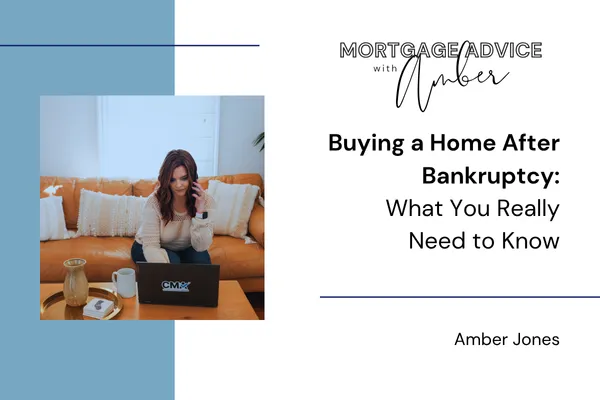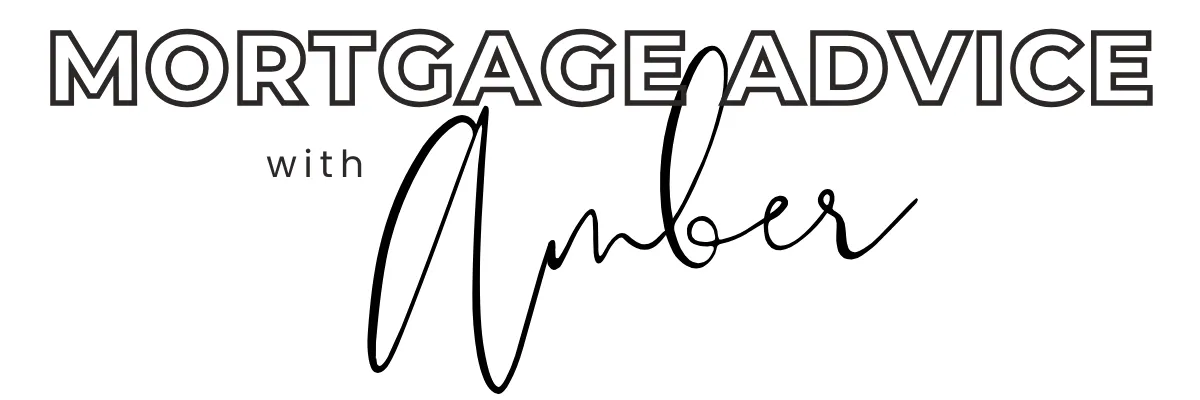
Buying a Home After Bankruptcy: What You Really Need to Know
Have you been told—or just assumed—that you need to wait 7 to 10 years after a bankruptcy before you can even think about buying a home?
You’re not alone. I talk to clients all the time who believe a bankruptcy ruins their chance of becoming a homeowner. But here’s the truth:
👉🏽 It’s absolutely possible to qualify for a mortgage after bankruptcy—sometimes in as little as 12 to 24 months.
Even better? You can still access low down payment loan programs, and in many cases, buy sooner than you think.
Let’s break down exactly how this works—by bankruptcy type, loan type, and realistic timelines—so you can move forward with confidence.
🎥 Watch: Can You Really Buy a Home After Bankruptcy?
First: The 3 Types of Bankruptcy That Affect Homebuying
Understanding what type of bankruptcy you filed (or are considering) is key to knowing your path forward.
1. Chapter 7 Bankruptcy – “The Reset”
Known as a liquidation
Most unsecured debts are discharged
Usually completed in just a few months
No repayment plan
2. Chapter 11 Bankruptcy – “Business Reorganization”
Used by businesses or self-employed individuals
Designed to restructure complex debt while continuing operations
3. Chapter 13 Bankruptcy – “The Wage Earner’s Plan”
Allows debts to be combined into a repayment plan
Lets borrowers keep assets if payments are made
Can be an excellent option for homeowners trying to keep their property
⏳ How Long Do You Really Have to Wait After Bankruptcy?
The waiting period before you can get a mortgage depends on:
The type of bankruptcy
The type of loan you’re applying for
Whether there were any extenuating circumstances
Here’s what you need to know for each loan type:
Conventional Loans (Fannie Mae & Freddie Mac)
Chapter 7 or 11:
4 years from discharge or dismissal
2 years if extenuating circumstances apply
(e.g., death, major medical event, involuntary job loss, divorce)
Chapter 13:
2 years from discharge
4 years from dismissal
Can shorten to 2 years from dismissal with extenuating circumstances
Multiple Bankruptcies:
5 years if you've had more than one bankruptcy in the last 7 years
Can shorten to 3 years with a strong explanation and proof of hardship
🔑 Pro tip: If your mortgage was included in the bankruptcy, the waiting period may start from the bankruptcy discharge date, not the foreclosure date. That can save you years.
FHA Loans (Most Forgiving Option)
Chapter 7:
2 years from the discharge date
Chapter 13:
Eligible after 12 months of on-time payments
Must show stable income and get court approval
Once discharged, wait 2 years to apply again
🔑 Why it's powerful: FHA allows borrowers to apply for a mortgage while still in their repayment plan. This flexibility makes FHA loans one of the most popular “back to homeownership” tools for post-bankruptcy buyers.
VA Loans (For Veterans, Active Duty & Eligible Spouses)
Chapter 7:
2 years from discharge
Some lenders may consider just 1 year with strong recovery
Chapter 13:
Eligible after 12 months of on-time payments
Requires court approval
1 DAY after discharge because VA guidelines focus on current financial stability, not just time passed and considers a fully completed repayment plan as reestablished credit
🔑 If you’re a veteran or military family, the VA loan is incredibly flexible—even more so than FHA in some cases.
Non-QM Loans: The “Outside-the-Box” Option
If you’re not quite ready for a conventional, FHA, or VA loan, Non-QM (Qualified Mortgage) loans may be a bridge.
Waiting periods as short as 1 year
Higher interest rates
Require larger down payments and cash reserves
🔑 These loans are ideal if you're financially ready but still within a typical waiting period—and don’t want to wait.
What Underwriters Are Really Looking For
Regardless of loan type, lenders focus on these 4 key factors:
12+ months of on-time payments
Re-established credit – Even one gas card or secured card, paid on time, helps
Stable income and small reserves
A clear explanation – A short letter outlining what happened, how you’ve recovered, and why it won’t happen again
How Long Does a Bankruptcy Stay on Your Credit Report?
Chapter 7: 10 years from filing date
Chapter 13: 7 years from filing date
✅ But here’s the kicker: Your ability to qualify for a loan is not tied to how long it’s on your credit. It’s based on the seasoning period and your credit recovery.
So even if your bankruptcy is still listed, you could be mortgage-ready now.
What If You’re Still Struggling With Debt?
You might be thinking, “I don’t want to file for bankruptcy—I’m afraid it’ll ruin my homeownership dreams.”
Here’s the truth: Sometimes filing bankruptcy—especially Chapter 13—is actually the solution that helps you qualify sooner.
If you’re drowning in debt, falling behind on payments, or can’t qualify for refinancing because of your situation, it might be worth exploring with a bankruptcy attorney and a mortgage advisor who understands complex lending.
Final Thoughts: You’re Closer Than You Think
A bankruptcy doesn’t define your future—it’s just one chapter of your story. With the right plan, you can absolutely recover, rebuild, and become a homeowner again.
💬 “The goal isn’t to force your story into a loan—it’s to find the loan that fits your story.”
— Amber Jones, Certified Mortgage Advisor
If you're not sure where to start or whether you're ready, let’s talk. Book a free 15-minute call and I’ll walk you through your options, no judgment—just solutions.
❓ FAQ: Buying a Home After Bankruptcy
1. Can I buy a home during a Chapter 13 bankruptcy?
Yes, especially with FHA or VA loans. You’ll need 12 months of on-time payments and court approval.
2. What counts as an extenuating circumstance?
Serious illness, death of a spouse, involuntary job loss, natural disaster, or divorce resulting in loss of income—all with documentation.
3. Will the bankruptcy on my credit report automatically disqualify me?
No. The key is whether the required waiting period has passed and your credit has been reestablished.
4. Which loan is best after bankruptcy?
FHA and VA are often most flexible. But the best option depends on your full financial picture, including income, savings, and credit.
5. What’s the fastest way to rebuild credit after bankruptcy?
Pay all bills on time
Get a secured credit card or small loan
Keep credit utilization low
Monitor your report monthly
✅ Ready to explore your options?
Let’s talk. I’ll help you figure out the best path forward—whether you’re freshly discharged or just now considering bankruptcy.

